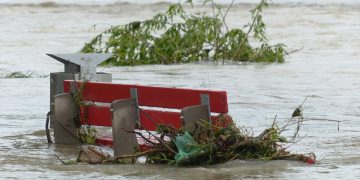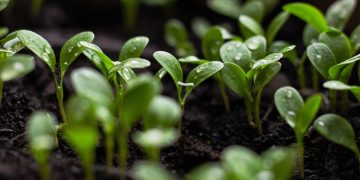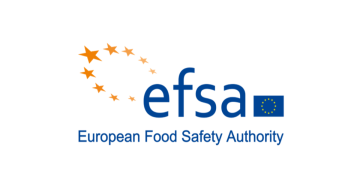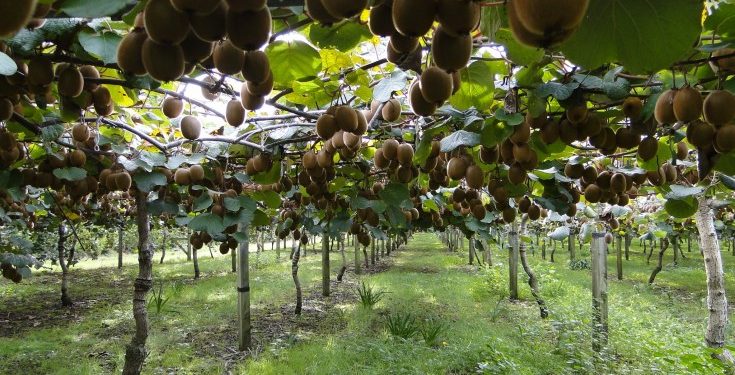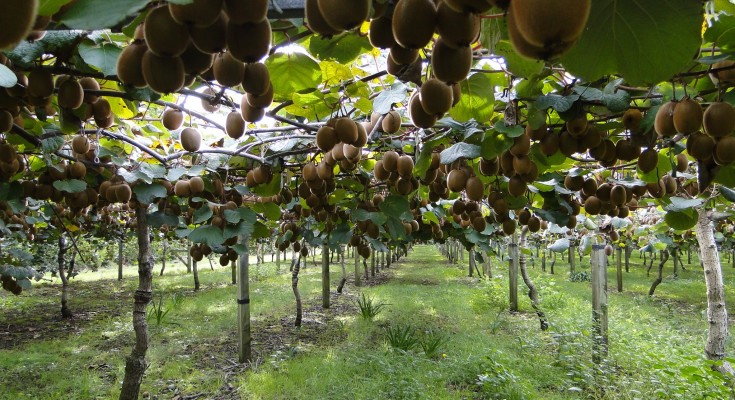Two anti-GMO stalwarts — the European Union (EU) and New Zealand — are showing signs of softening their stance toward the technology in the face of climate change impacts and pressure to innovate.
Regulators and others in the EU and NZ are advising that existing regulations are out of date and fail to reflect recent advances in the technology, particularly the potential of new tools like gene editing. They say regulatory revisions may be required to reduce carbon emissions and ensure food production remains competitive.
Any policy shifts in New Zealand and the EU are expected to have far-reaching effects on farmers, scientists and consumers in both jurisdictions, as well as trading partners and the rest of the world.
Gene editing would revolutionize breeding programs in New Zealand, a particularly useful dividend for a country where plant-based commodities account for around half of the export earnings. Genetic engineering has also been fronted as a solution for the increased threat from pests and diseases, such as those afflicting the valuable kiwifruit and forestry industries. The technology could also be used to confer desirable traits on some of the country’s important export plant species.
“Gene editing offers the potential to produce a step change in NZ primary industry productivity, biosecurity and speed of innovation. This is particularly the case for perennial crops with slow or complex breeding cycles that are a feature of NZ’s plant-based exports,” notes a study published in the online journal Frontiers in Plant Science.
Genetic engineering also ties into the country’s need to cut GHG emissions, at least 50 percent of which are generated by agriculture. A cross-section of experts have cited genetic modification as an effective way to minimize GHG emissions in the country.
Similarly, the adoption of GM crops could significantly boost Europe’s crop production, lead to positive land use changes and reduce climate-warming GHG emissions. Research5 has shown that wider adoption of the already-existing GM crops in the European Union could result in a reduction equivalent to 7.5 percent of the total agricultural GHG emissions of Europe.
A relaxed EU stance would also be a boon to exporting countries, particularly in Africa, that have long shied away from GM crops in order to uphold the EU’s restrictions on the technology.
Noting the potential of new genomic techniques such as gene editing to contribute to sustainable food, the European Commission launched a review of GMOs in April 2021, acknowledging that its earlier legislation of 2001 was not fit for the purpose. EU scientists are also exerting pressure to revisit the strict regulatory stance.
New Zealand is experiencing a similar push to align the country’s food production with emerging technologies and minimize carbon emissions. Fresh insights from the country’s Productivity Commission suggest that it is time for the island nation to revise its position on GMOs as one way of reducing constraints to innovation.
In an April report, the Commission stated that New Zealand’s biosafety regulations were last reviewed in 2001 and do not reflect technological advances. The Commission urged regular reviews of the country’s regulatory regimes to ensure they remain responsive to current needs, embrace upcoming technologies and do not stifle innovation.
“Technologies have moved on significantly over the last 20 years. In particular, advances in gene editing have produced technologies such as CRISPR, which enable much faster and more precise modification than earlier tools,” observes the Productivity Commission.
The panel further noted that agriculture producers in a case study had expressed concern about New Zealand’s “restrictive stance” on biotechnology.
“They said that the current regulatory approach is stifling the primary sector’s ability to innovate and seize significant opportunities, as well as its ability to protect existing markets. Restricted access to GM tools also inhibits the sector’s ability to prepare for potential risks, such as biosecurity threats. Similar concerns have been raised with the Commission in previous inquiries,” states the report.
New Zealand concedes that its laws and regulations governing genetic modification are among the most rigorous in the world.
Although GM plant research and development is permitted indoors, few applications for outdoor confined field trials have been submitted for evaluation over the past 25 years, notes a 2021 study published in the New Zealand Journal of Agricultural Research.
Then there is the issue of national branding. The anti-GMO sentiment is partly premised on New Zealand’s image of being clean, green and “100 percent pure,” a stance that GM opponents have exploited to align with a GMO-free status. Pundits, however, note that the potential of jeopardizing that branding through the use of GM technologies is vague and not grounded in reality.
Past studies have shown that the introduction of GM crops into New Zealand is “highly unlikely” to dent perceptions in overseas markets of the country as a source of high-quality food products or as a highly desirable tourist destination.
This is not the first time that NZ has broached the subject. As far back as July 2001, New Zealand’s Royal Commission averred that the country should keep its options on GMOs open, citing the potential advantages of the technology.
“It would be unwise to turn our back on the potential advantages on offer, but we should proceed carefully, minimizing and managing risks,” the Royal Commission stated.
And in 2018, the Ministry for the Environment advised that the regulatory settings were quickly becoming outdated and hard to enforce.
More recently, New Zealand’s Climate Change Commission added its voice to the calls. It recommends evaluating the role of emerging technologies, such as genetic engineerin,g in reducing agricultural emissions, and reviewing and updating processes and regulatory regimes to ensure that new emissions-reducing technologies and practices can be rapidly deployed.
Now the government appears to be warming up to the concerns. Reports indicate that the government accepts that it is “timely” to start informed conversations around the country’s use of genetic modification technologies, but insists that the move must be guided by its “proceed with caution” approach.
By Joseph Maina
O artigo foi publicado originalmente em Cornell Alliance for Science.



